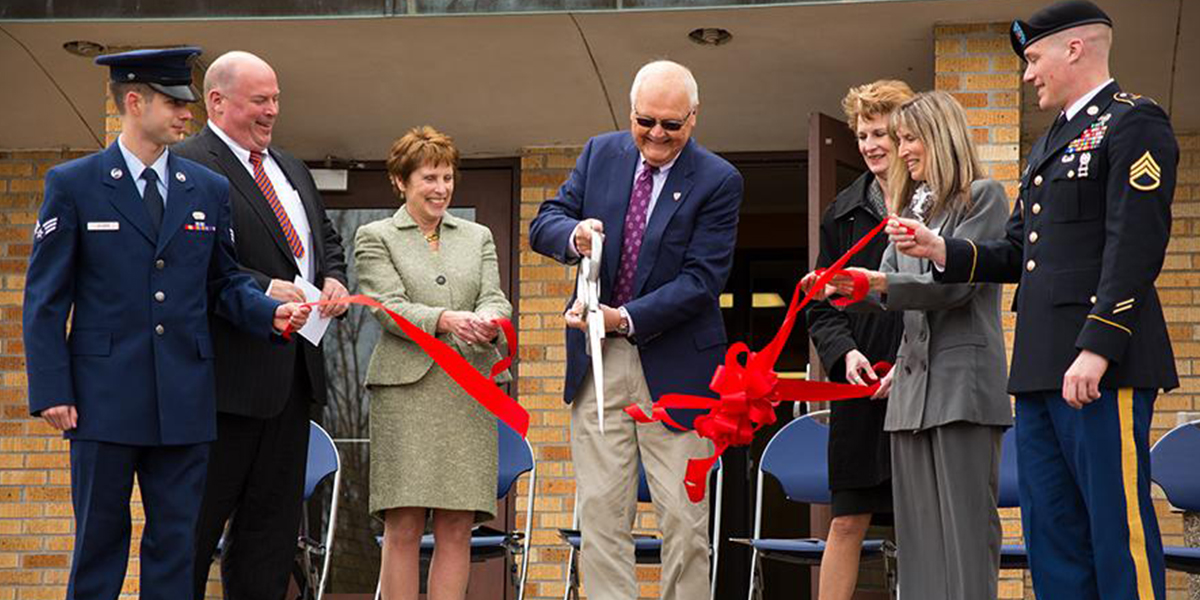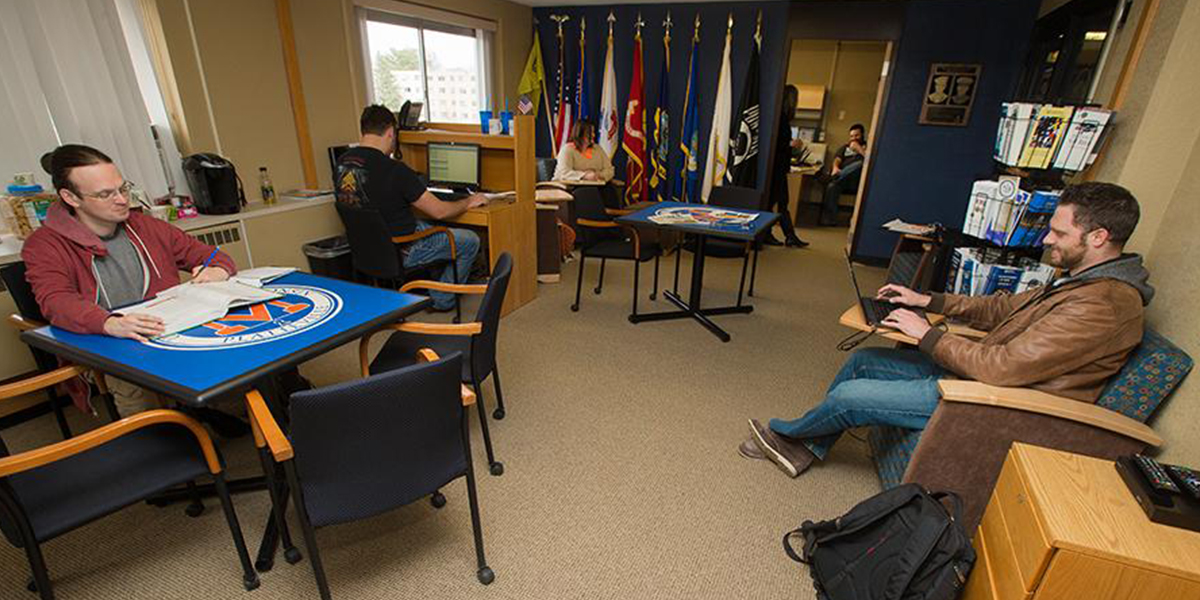

The Robert and James Wright Center for Non-Traditional and Veteran Students continues to grow at the University of Wisconsin-Platteville since opening five years ago in April of 2014. On April 10, the center is celebrating its anniversary with an open house from 9 a.m.-3 p.m. in Royce Hall. The center is inviting veteran students, non-traditional students, faculty and staff to attend.
“We are excited to have people come, visit and talk about the new programming and see how the Wright Center has grown,” said Greg Tremelling, Wright Center coordinator. The center is developing programs to help make veteran and non-traditional students feel more connected to campus along with helping them reach their educational goals.
“Programming that we’re starting with on April 11 is our Supporting Student Veterans program. It’s a two-part program designed around creating awareness about our veteran population and the challenges they face, as well as providing a support structure for those veterans,” said Tremelling.
Veteran and non-traditional students often face different obstacles compared to their peers on campus according to Tremelling. “They might be parents or working a full-time job, working a couple of part-time jobs. They have financial obligations that traditional students don’t necessarily have,” he said. “It’s important for veterans to feel like they have a support structure on campus, to visually see that staff is supportive of the challenges they face and understand that while they don’t know everything about veterans, they are willing to learn about them and willing to help them achieve their education.”
Another program recently unveiled at the Wright Center is the Salute Veterans National Honor Society. The society recognizes academic achievements of student veterans and provides them an opportunity to network along with scholarship opportunities, said Tremelling. To join, students must have a 3.0 GPA or higher, completed 12 credits and pay a membership fee. “As we support these students we want to give them something to reach for. This goal allows them opportunities to have something tangible that they can compete for by having a better GPA,” he said.
The Wright Center is also focusing on providing new programs for non-traditional students. In January, the center became a member of the Association for Non-Traditional Students in Higher Education. “The resource helps us learn where programming opportunities may lie,” said Tremelling. “We want to make sure we are servicing that population, even though veterans are non-traditional students, we have non-traditional students who are not veterans, we want to make sure we are giving them opportunities as well.”
Tremelling hopes to bring more programs to the Wright Center this summer and implement new workshops for students this fall. “We are excited about five years of supporting student success in the Wright Center and look forward to creating new opportunities to help non-traditional and veteran students succeed on campus,” he said.